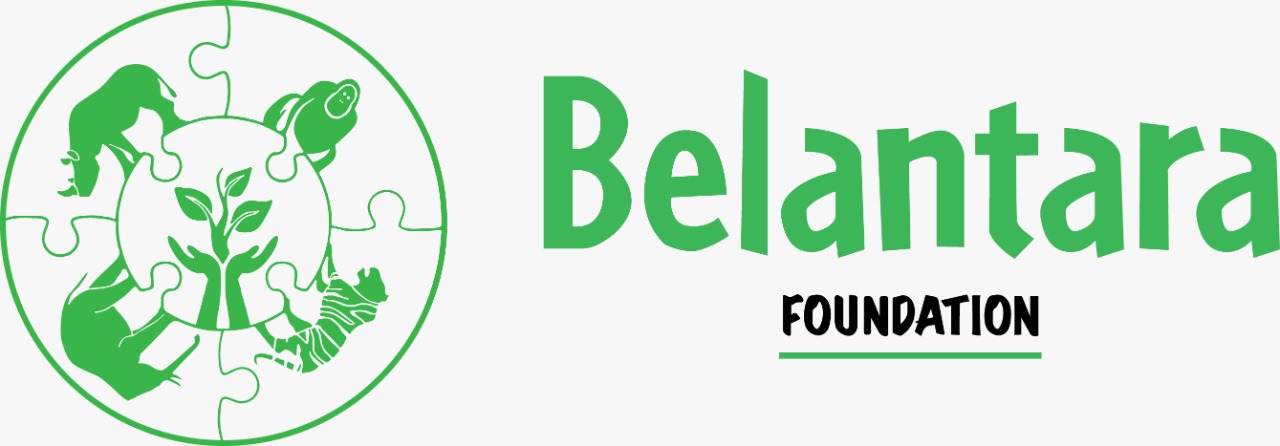The importance of education and role of educational institutions in climate change mitigation and achieving UN SDG 13 “Climate Action”
Abstract
Keywords
References
Ahlbäck, A., Klingvall, H., Nordell, E., & Eriksson, K.M. (2024). Synergies and trade-offs between the sustainable development goals and reaching zero net greenhouse gas emissions in Sweden. doi: 10.21203/rs.3.rs-4630096/v1
Ali, S., Khan, S.M., Ahmad, Z., Siddiq, Z., Ullah, A., Yoo, S., Han, H., &
Raposo, A. (2023). Carbon sequestration potential of different forest types in Pakistan and its role in regulating services for public health. Frontiers in Public Health, 10:1064586.
Ali, S., Khan, S.M., Siddiq, Z., Ahmad, Z., Ahmad, K.S., Abdullah, A., Hashem, A., Al-Arjani, A.B., Abd_Allah, E.F. (2022). Carbon sequestration potential of reserve forests present in the protected Margalla Hills National Park. Journal of King Saud University-Science, 34(4):101978.
Anshari, S., Listyarini, S., & Nurmawati, S. (2023). Relationship between adaptation and mitigation of climate change with the climate village program (ProKlim) In Paser Regency. Indonesian Journal of Applied Environmental Studies, 4(2): 93-100. DOI: 10.33751/injast.v4i2
Belić, D.S. (2006). Global warming and greenhouse gases. Facta Universitatis - Series: Physics, Chemistry and Technology. doi: 10.2298/FUPCT0601045B
Dasopang, M.D. (2022). Menarik Benang Merah Basis Pendidikan Islam Bermartabat. Darul Ilmi: Jurnal Ilmu Kependidikan & Keislaman, doi: 10.24952/di.v3i2.5050
Ebert, S. (2023). Climate Change. Advances in human resources management and organizational development book series. doi: 10.4018/978-1-6684-6878-4.ch011
Goritz, A., & Kolleck, N. (2024). Education in international climate pledges – identifying education framings in countries nationally determined contributions (NDCs). Environmental Education Research. doi: 10.1080/13504622.2024.2340504
Heriyanto MN, Priatna D, Samsoedin I. (2020). Keanekaragaman hayati dan rosot karbon pada rawa gambut di Bukit Batu, Kabupaten Bengkalis Riau. Jurnal Penelitian Hutan Tanaman 17 (1): 53-67.
Heriyanto, N.M., Priatna, D. & Samsoedin, I. (2021). Sediaan Karbon pada Hutan Bekas Terbakar di PT Bumi Andalas Permai, Provinsi Sumatera Selatan. Jurnal Penelitian Hutan dan Konservasi Alam 18 (2): 111-122.
Heriyanto, N.M., Priatna, D., Samsoedin, I. (2022). Plant diversity and carbon stock in Tembawang Alak Forest, Sintang, West Kalimantan. Buletin Kebun Raya, 25(3): 142‒155.
Jackson, W.P. (2011). What Is Education?. Chicago: The University of Chicago Press.
Jaramillo, A., & Mendoza-Ponce, A. (2022). Climate Change Overview. In: Frías-De-León, M.G., Brunner-Mendoza, C., Reyes-Montes, M.d.R., Duarte-Escalante, E. (eds) The Impact of Climate Change on Fungal Diseases. Fungal Biology. Springer, Cham. Pp. 1-18. https://doi.org/10.1007/978-3-030-89664-5_1
Khan, S., Yuan, H., & Hussain, M. (2024). Balancing act: Trade‐offs and synergies within Sustainable Development Goals 1st, 10th, and 13th—Poverty, inequality, and climate actions. Sustainable Development. doi: 10.1002/sd.3079
Khan, S.M., Page, S.E., Ahmad, H., & Harper, D.M. (2013). Sustainable utilization and conservation of plant biodiversity in montane ecosystems: the western Himalayas as a case study. Annals of Botany, 112(3): 479-501. doi:10.1093/aob/mct125
Khan, S.M., Page, S., Ahmad, H., & Harper, D. (2014). Ethno-ecological importance of plant biodiversity in mountain ecosystems with special emphasis on indicator species of a Himalayan Valley in the northern Pakistan. Ecological Indicators, 37:175-185. doi.org/10.1016/j.ecolind.2013.09.012
Lawrence, A. (2009). Uncloaking Epistemologies through Methodology. doi: 10.1057/9780230622982_7
Priatna, D., Heriyanto, N.M., Samsoedin, I., Supriatno., Wiharjo, U., Laksana, E. (2022). Structure and Composition of Vegetation and Carbon Stock Calculation in a Natural Lowland Forest of Plantation Forest Landscape. Journal of Tropical Biodiversity, 2(3): 177-196.
Priatna, D., & Monk, K.A. (2023a). Climate change and Its implications on wildlife conservation. Indonesian Journal of Applied Environmental Studies, 4(2): 64-66. DOI: 10.33751/injast.v4i2.9661
Priatna, D., & Monk, K.A. (2023b). Progress, Challenges, and the Nexus of Research and Impact - the importance of technology in biodiversity conservation in Indonesia. Indonesian Journal of Applied Environmental Studies, 4(1): 3-9. DOI: 10.33751/injast.v4i1.8778
Riaz, S.M.F., Sohail, M., Haroon, M.U., Rashid., Nawaz., Vardah, M.F., Asif., Majeed, Y., Sahar, R., Khan, A.G., Farooqi, Z.U.R., Ma'arij, A., Ilić, P., Jamal, M. (2024). Global Insight Into National Climate Mitigation Priorities Within the Framework of Climate Education. Advances in educational marketing, administration, and leadership book series, doi: 10.4018/979-8-3693-4103-2.ch005
Rimba, A.B., Hirabayashi, Y., Kawamitsu, Y., Oki, T., Kiguchi, M., Tokuda, D., Hanasaki, N., Ai, Z., Iizumi, T., Nozaki, N., & Kim, W. (2024). Synergies overcome trade-offs between climate policy and water-related SDG targets. Hydrological Research Letters. doi: 10.3178/hrl.18.58
Saini, P., & Grover, A. (2023). Climate change – integrating policy, practice and education. Journal of Global Resources. doi: 10.46587/jgr.2023.v09i02.002
Suteki, M., Betlajery, S., & Kuntag, J.R. (2023). Higher education roles to support climate change mitigation. doi: 10.22487/agroland.v0i0.1940
Tripathy, A.B., Swain, B., & Mishra, M. (2024). Environmental Sustainability for a Sustainable Future and Role of Education (In Climate Change Perspectives). doi: 10.53555/kuey.v30i5.5952
Vladimir, P. (2018). Education, the formation of personality and the destiny of a man. doi: 10.2991/ICTPPFMS-18.2018.41
Xiao, H., Bao, S., Ren, J., Xu, Z., Song, Xue., & Liu, J. (2024). Global transboundary synergies and trade-offs among Sustainable Development Goals from an integrated sustainability perspective. Nature Communications. doi: 10.1038/s41467-023-44679-w
Yusuf, O.J., Yusuf, A., Adenle., Lateef, A., Jolaoso., Ismaila, Abimbola., Yusuf, A., Aina., Ismaila, Rimi, Abubakar., Lukman, A., Ajibade. (2024). Climate change education: Addressing the challenges of sustainable futures. doi: 10.1016/b978-0-44-313776-1.00230-0
Zebaloğlu, E. (2024). Eğitsel Süreçlerde Eğitim İhtiyaçlarının Belirlenmesine Yönelik Yaklaşımlar. Uluslararası Sosyal Bilimler Dergisi. doi: 10.52096/usbd.8.33.33
DOI: 10.33751/injast.v5i1.10559
 Abstract views : 676
Abstract views : 676
Refbacks
- There are currently no refbacks.
Copyright (c) 2024 Indonesian Journal of Applied Environmental Studies

This work is licensed under a Creative Commons Attribution-NonCommercial-ShareAlike 4.0 International License.













